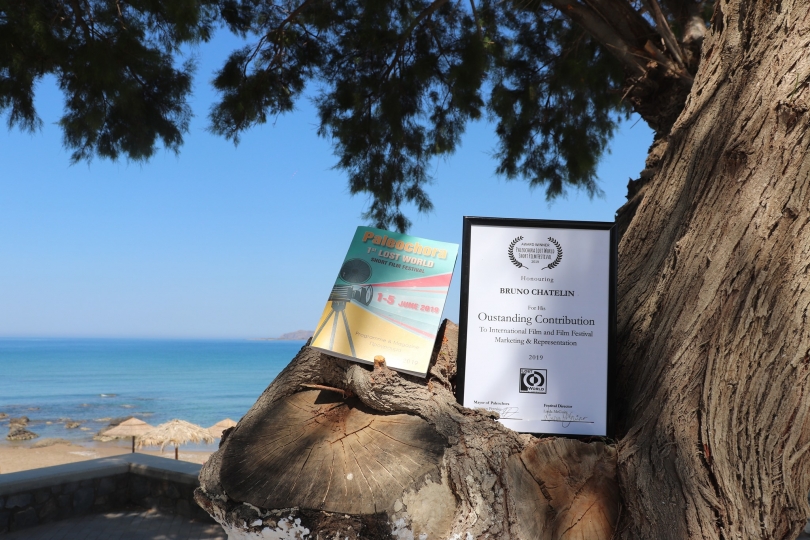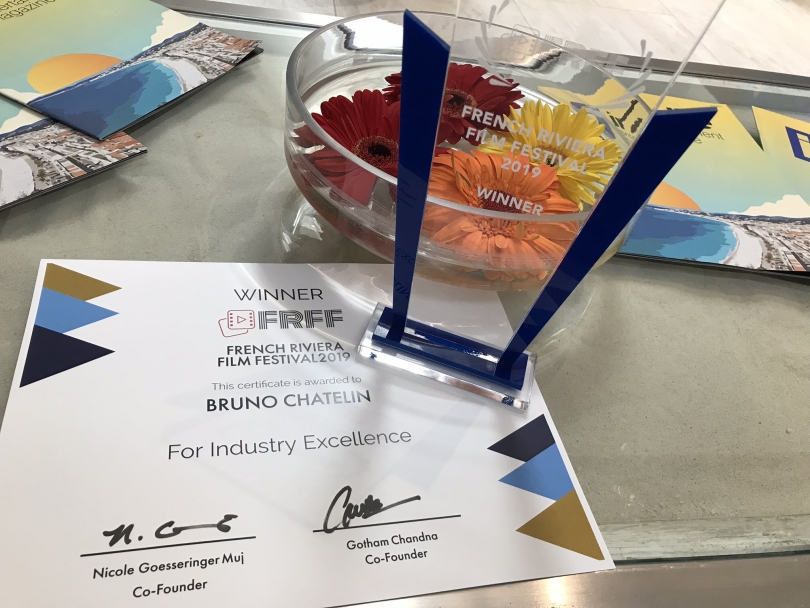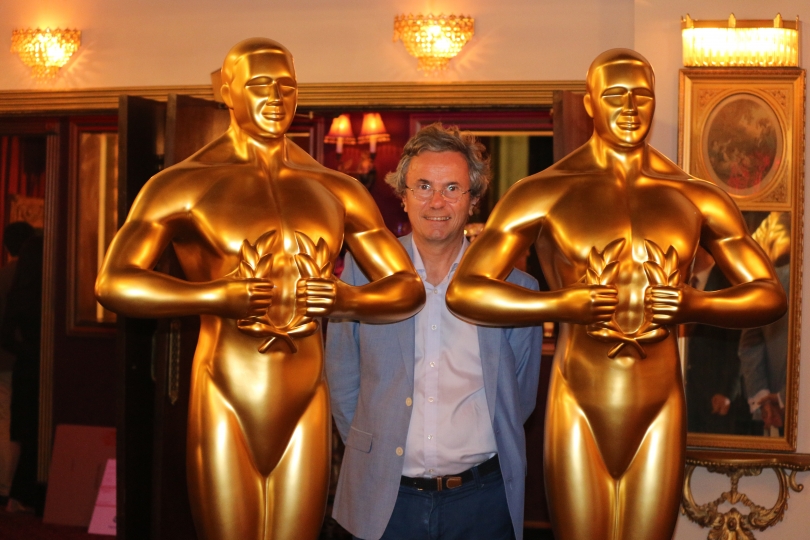The Bang Bang Club is the true story about four, free spirited combat photographers with a passion for danger and search for the truth during the uprisings in apartheid South Africa from Nelson Mandela’s release from serving a life sentence in prison on February 11, 1990, to the first democratic election in 1994, in which he became President until 1999. Follow these fearless young men as they demonstrate bravery, camaraderie, and moral turpitude, in the heart of the apartheid riots and “trigger happy madmen”. Not long after photographer Greg Marinovich (played by Ryan Phillipe), is looking for freelance work at the local paper, does his talent shine through and move him ahead to international recognition, however, with the honors comes the scrutiny and backlash from the Zulu’s and the African National Congress. When asked about playing Greg Marinovic, Ryan Phillippe stated, “I struggle with the idea of the invasion of people’s personal tragedies”.
Many probably remember the controversial photograph of the young girl in Sudan struggling for her life while a vulture looked on ready to attack. This photo, for which he was persecuted over, was taken by South African native and one of the members of “The Bang Bang Club”, Kevin Carter.
Is the combat photographer supposed to step in and save lives after s/he gets their shot? Should they show the atrocities no matter how upsetting they are? Is it morally wrong to take pictures of people while they are dying?
Q:-Taylor: “What’s more important? The photo or saving people?”
Taylor Kitsch: “It’s really their gun. It’s really their way of making a difference. Everyone has their own moral integrity of where they stand and every situation is different. If you turn on the news, it will be negative. You don’t hear about the journalists that rescued someone, or that did something to prevent something worse from happening. There’s also a fine line of being a vigilante. If I’m there trying to do everyone else’s job you are actually endangering and impeding the process. Knowing where you stand takes a lot more courage than it does to just be chaotic. Everyone is different. It’s an endless debate.
Q-Greg: “Talk about Tim Hetherington’s death.”
A: Greg Marinovich: (Combat Photographer and one of the members of “The Bang Bang Club”:
“Obviously it just happened yesterday, and it is very upsetting, and they were two great photojournalists, and Tim, was a filmmaker as well. I think what it does, is kind of underlines the risks that conflict journalists face, not just photographers. It’s part of the whole kind of dilemma of how much emphasis should we put on people who choose to be in a war zone, like we did. How much sympathy are we due? Not much I suspect. It’s terrible, it’s upsetting. We do go there voluntarily, and that has to be kept in mind.”
Q-Ryan: ” Most challenging part of the film?”
A: Ryan Phillippe:
“Any adaptation, any movie based on a true story, there are liberties taken and you have to kind of accept that. Greg and I spent time together in person only about a week before we started shooting. It is a small film, you don’t have a ton of prep time, and there wasn’t enough money to fly me out and keep me in South Africa for weeks before we started shooting. There was a brevity that is somewhat regretful. The challenges, for me, beyond the accent, were sort of educational. There was a lot about this time in this country that I wasn’t aware of, which I feel like is a neglect in regards to the school system. I knew what apartheid was, I knew the dynamics of it, but I did not know the particulars, and the inner workings of what was going on with the government, how the government was stoking and fighting. I did a lot of reading. I read the history of South Africa, I read Mandela’s autobiography. A lot of it was that for me. It was kind of getting a sense of what was going on there, politically, socially, to an extent that I didn’t have the knowledge prior.”
Q: Greg Marinovich: How do you think Ryan did?
A: Greg Marinovich: “I think Ryan did particularly well on my looks. It’s quite weird at times. Watching the movie is quite an experience, but being on a movie set was fascinating because sometimes I would watch Ryan interacting with my late friends and was like, “Wow!”, because they all vaguely look like their characters. All of them! Some quite closely, actually. That was quite disturbing to be quite honest. It can’t be easy acting as someone else when two of the actual people are there, looking at you, interacting with you, making comments. It’s quite complicated. The actors did very well.”
Q: “Talk about any fears or trepidation.”
A: Ryan Phillippe:
“I don’t think in those terms. I’m excited by challenges, and new territory. So trepidation or fear doesn’t really relate in that regard. I think that it was important to Greg and Joao Silva, that their late friends Ken and Kevin weren’t portrayed as caricatures or stereotypes. I wanted to pay respect and honor them. That’s the primary thing we were most careful of essentially, the memory of Ken Oosterbroek and Kevin Carter. It was emotional for Greg Marinovich at times. When we would shoot in the place where the actual events took place, they hadn’t changed drastically. In terms of infrastructure, it looks almost exactly as it did then. I think there was something impactful about that, about how fresh it seemed to be shooting in those locations, where the memories are still so raw for a lot of people.”
Q-To Greg Marinovich: “Were you too over confident in the scene that led up to you being hospitalized?:
A: Greg: “That was kind of a movie moment. It did happen, but not in such dramatic circumstances. There wasn’t a gun battle going on when I ran across to get a Coke. It could be over-confidence, but if you cover combat territories, you have to have a sense of immortality, because if you know you are going to get hurt or killed or lose your legs, you are not going to do it. If you thought, “I’m going to take this picture, I’m going to die”, of course you are not going to do it, that’s just ridiculous. What you have is, “I know it can happen, but I don’t think it is going to happen to me.”
Ryan Phillippe: “That’s the cavalier mentality.”
A-Greg Marinovich:
“It’s a belief that isn’t not going to happen to me. You don’t drive in a car and think you are going to get into a car accident, but the chances are greater getting into a car accident then getting shot doing photography. So, what you do is kind of suspend the inevitable, if it is going to be the inevitable, and when it happens, it’s quite a shock. Before it happens, it’s fine.”
Q: Greg: When did you stop combat photography?
A: Greg Marinovich:
“When I married that good looking girl int he corner there about 10 years ago. Before that, in 1999, before the American involvement, and we were with the Northern Alliance, I had a bad feeling about it for days and wanted to leave. It was kind of disturbing to the people we were with. They wanted to keep going and I did get hit. As soon as I was hit, I said, ’That’s it! This is a joke!’ You are a freelancer, you spent months recovering”. I don’t have Ryan’s teeth. I used to have Ryan’s teeth. I’ve had to get these replacement teeth, and I couldn’t work for months. It’s ridiculous. That’s when you realize, this is stupid and move on.
Q: Ryan Phillippe: Do you have a new found respect for photography?
A: Ryan Phillippe:
“Certainly in regards to the light that can be shed on certain social situations and political situations, absolutely. Also, this was a period of time before the prominence of the internet and how immediate the media has become. These photographs really kind of did educate the world in a lot of ways as to what was happening in South Africa at this time. The importance photographically, it still exists to some extent, but I don’t think, now with Twitter and Facebook and social media, we all saw what happened in Egypt and how we were all kept kind of abreast of what was happening there every single second. It wasn’t that way back then, so the importance was even greater at that period of time they were taking these photographs because, “Time” magazine was the world’s window into situations like the fall of apartheid. Now, I think there’s a lot of different ways you can access that information, but I think event though we are talking about it like it’s long past, but things have changed technologically so drastically. So I think it was even more important.”
A-Greg Marinovich:
“I think there’s a kind of democratization of media today that allows voices to be heard that couldn’t be heard previously. One of our issues was trying to get these organizations to tell what we thought was the truth then. There was a newspaper in Johannesburg that was called “Sunshine in Johannesburg”, they would say, “We can’t keep showing the violence”, I would reply, “But the violence is still happening”, their reply was, “Well, we can’t keep showing it to our audience.” For example those Pulitzer pictures of mine, not of Kevin’s, weren’t widely used. They were widely distributed, but they weren’t widely used, because they were thought of as too distasteful, yet that was what was happening. So how did these photos get out? There was no You Tube, or internet. It’s quite interesting. You look back in retrospect. There’s a body of works that tell stories, and I think that’s very important.”
Q:-Ryan: How was South Africa?
A: Ryan Phillippe:
“I loved South Africa. I loved the food in South Africa. I really loved it. We spent most of our spare time at Greg’s house. Again, it was an independent film, 6 day weeks, I was in every scene, so there was not a lot of free time. I got to experience the country from a social standpoint, and I loved interacting with people. I loved the energy. There’s something great about a country that’s reshaping it’s identity, and there’s something so alive about that for me. I got that from the interaction with people, but there wasn’t a lot of time. I’m going back in July for the premiere of this film, and I’m going to take my children. We are going to go on safari, we’re going to go to Soweto, but I didn’t really have time to do that kind of thing when I was there shooting. It was really run and gun.”
Q-Greg: “What’s most beautiful about South Africa?”
A: Ryan Phillippe: “It gets under your skin. The country just does. I don’t know how or why you can account for that. It definitely does.”
A: Greg Marinovich: “I think it is a kind of combination of openness and in your face. I mean New Yorkers are in your face, but in a way it’s a kind of brassiness. In South Africa it’s an in your face that’s more earthy. It’s such a mixed society. Johannesburg is a new city essentially, and no one is more that 3 generations. Everyone is a newcomer, so it’s very open. It’s not like one of these cities that is closed. Joburg is full of immigrants from all over Africa and all over the world. It is vibrant and unpredictable.
The beauty, I mean the country is obviously physically beautiful. I think countries that undergo difficult situations, as a society, something happens to the people that make them more interesting and they look at things differently. There’s a lack of glibness with the way they deal with people.”
A: Ryan Phillippe: “I agree.”
Q: “Talk about the safari you are going to go on.”
A: Ryan Phillippe: “I’ll let my kids dictate the animals they like the best. I remember some guys went out to play golf and there was a zebra walking across the golf course. It’s something unlike anything we would see here. On the way to work we saw monkey’s on the side of the road.”
Q:-Ryan: “What do you think makes a photograph great?”
A: Ryan Phillippe: “If it is able to tell a complex story in a single frame.”
Q: Ryan: Similarities between combat photographer and a soldier?”
A: Ryan Phillippe: “I would equate combat photographer being close to a soldier. There’s something about putting yourself in that situation, the preparedness, the risk, the devotion to what you are doing. There is a lot of risk involved physically. I definitely found myself thinking about what Greg, Joao, Kevin and Ken did. These guys had no protection, no weapons, and they were in the midst of a battled. That concept was so compelling to me. The idea that you would willingly place yourself in such direct potential harm without any kind of protection, is a a mentality that I don’t think a lot of people can relate to. They didn’t wear vests because they found them too cumbersome, so they wouldn’t want to wear them.”
Q-Greg: ”How do you keep your emotions in check?”
A: Greg Marinovich:
“I generally don’t believe in this objectivity nonsense. One has to be honest and truthful, but to be subjective is difficult. Why should I pretend I’m a technician or just a camera when I’m taking pictures of other human beings? That’s just ridiculous. These kind of pictures are essentially soulless. My emotions are all out there when I’m photographing. I let me feelings out.”
Article and transcripton by Sharon Abella
www.1worldcinema.wordpress.com

 Chatelin Bruno
Chatelin Bruno 




























